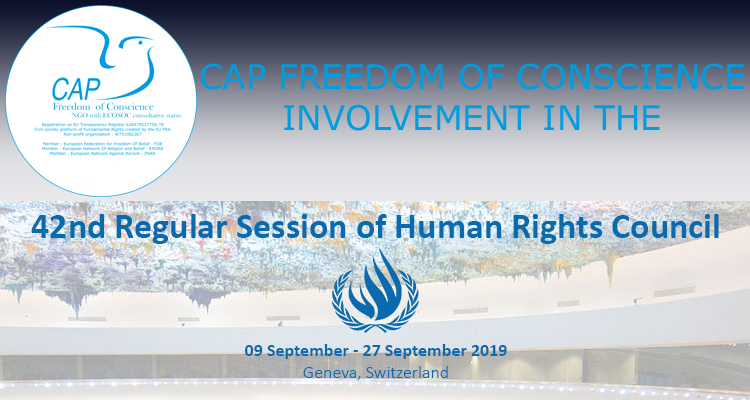In a never-ending property right dispute, Dalibor Mocevic, a Croatian and Bosnian national of Serbian descent, has been a victim of human rights violations in Croatia on the basis of his nationality, according to some investigation of the Brussels-based NGO Human Rights Without Frontiers.
He and his attorney at law, Miljan Timotijevic, are also of the opinion that discrimination based on ethnic origin is in the core of all his troubles and travails of his family during the years, caused by Croatian authorities. In the center of this case is the fact that Dalibor Močević is a Serbian national with both Bosnian and Croatian citizenship, his late ancestors.
- Mocevic had a permanent residence in a flat located in Zadar, at 6 Ugljanska Str. where he had lived since his birth in 1972 until 1994. This flat belonged to his father, Savo Mocevic, who had received it in 1972, during the Communist period, from his former employer, the Customs Office of Zadar. According to the relevant legislation in force, D. Mocevic and his mother became automatically the co-owners of the flat under the administrative/legal status of “specially protected tenancy”.
On 15 September 1992, D. Mocevic’s father died as a victim of the war in Bosnia in a sanatorium where he had spent the last years of his life.
In 1993, the Ministry of Finance, the Customs Administration and the Customs Office of Zadar brought a civil action against Dalibor’s parents in the Zadar Municipal Court, seeking the eviction of D. Mocevic and his mother from the flat. However, as a co-owner of the flat, he was entitled to use and purchase it in accordance with the Housing Act. At the beginning of 1993, D. Mocevic also submitted a request for the property right transfer to his name.
In January 1993, D. Mocevic, who was employed by a merchant shipping company, left Zadar on a ship for one year.
In February 1994, he came back to Croatia and found that the flat was occupied by a family of refugees. His personal belongings had remained untouched. He had however no other place to live in. His mother had in the meantime been given a 58 sqm flat by her own employer under the status of “protective tenancy” but she was living there with a new partner and his children.
During the proceedings, the court received a certificate from Zadar police confirming that his registered residence had been at 6 Ugljanska Str. in Zadra since 29 September 1988.
Ten years of “ping pong game” between the Municipal Court and the County Court in Zadar
On 9 February 1999, the Municipal Court cancelled the specially protected tenancy rights of Dalibor’s mother concerning the flat at Ugljanska Str.
On 26 April 2001, the Municipal Court deprived Dalibor of any rights on the flat but he appealed the decision.
On 11 September 2003, the Zadar County Court quashed the first instance judgment and remitted the case.
On 11 November 2004, the Municipal Court ruled again for the defendant state (Croatia) but Dalibor appealed the decision.
On 27 September 2006, the Zadar County Court quashed again the first instance judgment and remitted the case.
The “ping pong game” between the two courts continued for four more years.
On 31 August 2010, the Zadar County Court dismissed Dalibor’s appeal and upheld the first instance judgment, which hereby became final and enforceable.
Proceedings at the Constitutional Court and the Supreme Court
On 25 October 2010, D. Mocevic lodged a complaint with the Constitutional Court against the County Court’s decision, alleging violations of his constitutional rights to equality before the law and fair proceedings as well as his right to respect his peaceful enjoyment of his possessions. Indeed, the Government had never disputed the fact that the flat in question was his actual place of residence.
- Mocevic also lodged an appeal on points of law with the Supreme Court. Relying on section 382 (1) and 382 (2) of the Civil Procedure Act, he argued that his case raised legal issues important for ensuring the uniform application of the law and equality of citizens.
On 3 March 2011, the Supreme Court declared his appeal on points of law inadmissible.
At the end of 2011, D. Mocevic left Croatia due to fear for his own safety as he repeatedly received phone threats.
As his mother had died in 2009 and he had no living relative left in Croatia, he had no knowledge of the outcome of the proceedings of the Constitutional Court for several years.
In November 2016, after repeated inquiries by electronic mail, he received a notification from the Constitutional Court saying that a decision had been taken on 22 February 2012. He was orally informed that his complaint had been dismissed as unfounded.
A complaint for denial of justice and ethnic discrimination has been lodged with the European Court of Human Rights. As of the end of August 2019, the admissibility of the case has not been examined yet.
Considering the denial of justice by Croatian authorities, based on ethnic discrimination in all legal proceedings, in the case of Mr Mocevic who tried to protect his ancestral properties.
Considering that the Croatian authorities prevented him from inheriting a lot of property from his late mother – his apartment in Zadar, land and family house in the wider Zadar country, a boating business and another apartment jointly possessed by her and her partner Mr Ante Radetic, a Croatian national;
We recommend that the Croatian judicial and political authorities restore Mr Mocevic in his legitimate rights and put an end to all forms of discrimination towards people of non- Croatian origin.
Human Rights Without Frontiers NGO(s) without consultative status, also share the views expressed in this statement.
Dalibor-Mocevic-versus-Croatia-denial-of-justice



